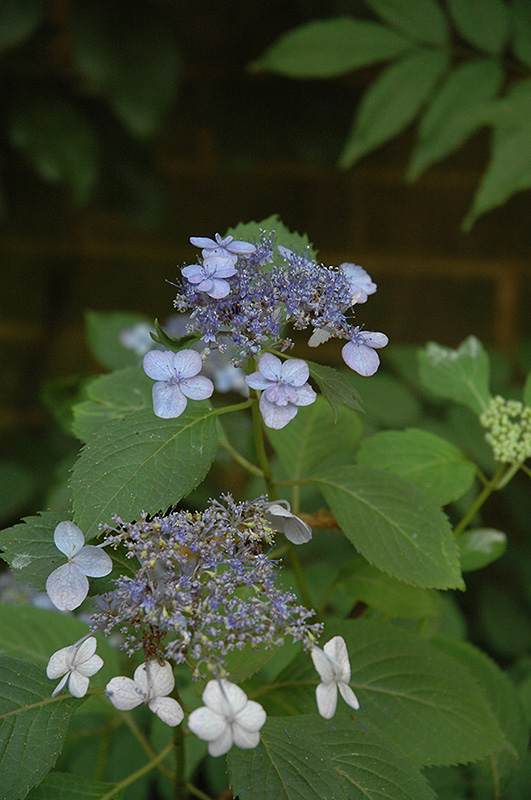Brunswick
422 Bath Road
Brunswick, ME 04011
1-800-339-8111
207-442-8111
Falmouth
89 Foreside Road
Falmouth, ME 04105
1-800-244-3860
207-781-3860
Cumberland
201 Gray Rd (Route 100)
Cumberland, ME 04021
1-800-348-8498
207-829-5619
Blue Billow Hydrangea
Hydrangea serrata 'Blue Billow'
Height: 4 feet
Spread: 6 feet
Sunlight:
![]()
![]()
Hardiness Zone: 5b
Other Names: Mountain Hydrangea
Description:
A beautiful rounded shrub that features showy light blue lacecap flowers for several weeks that change to stunning crimson as they age; leaves are tinged with burgundy in the fall; a wonderful choice for the flower garden or border
Ornamental Features
Blue Billow Hydrangea features bold sky blue lacecap flowers at the ends of the branches from early to mid summer. The flowers are excellent for cutting. It has dark green deciduous foliage. The pointy leaves turn an outstanding burgundy in the fall.
Landscape Attributes
Blue Billow Hydrangea is a multi-stemmed deciduous shrub with an upright spreading habit of growth. Its relatively coarse texture can be used to stand it apart from other landscape plants with finer foliage.
This is a relatively low maintenance shrub, and should only be pruned after flowering to avoid removing any of the current season's flowers. It has no significant negative characteristics.
Blue Billow Hydrangea is recommended for the following landscape applications;
- Accent
- Mass Planting
- General Garden Use
Planting & Growing
Blue Billow Hydrangea will grow to be about 4 feet tall at maturity, with a spread of 6 feet. It has a low canopy. It grows at a medium rate, and under ideal conditions can be expected to live for approximately 30 years.
This shrub does best in partial shade to shade. It does best in average to evenly moist conditions, but will not tolerate standing water. It is not particular as to soil type, but has a definite preference for acidic soils. It is somewhat tolerant of urban pollution, and will benefit from being planted in a relatively sheltered location. Consider applying a thick mulch around the root zone in winter to protect it in exposed locations or colder microclimates. This is a selected variety of a species not originally from North America.

